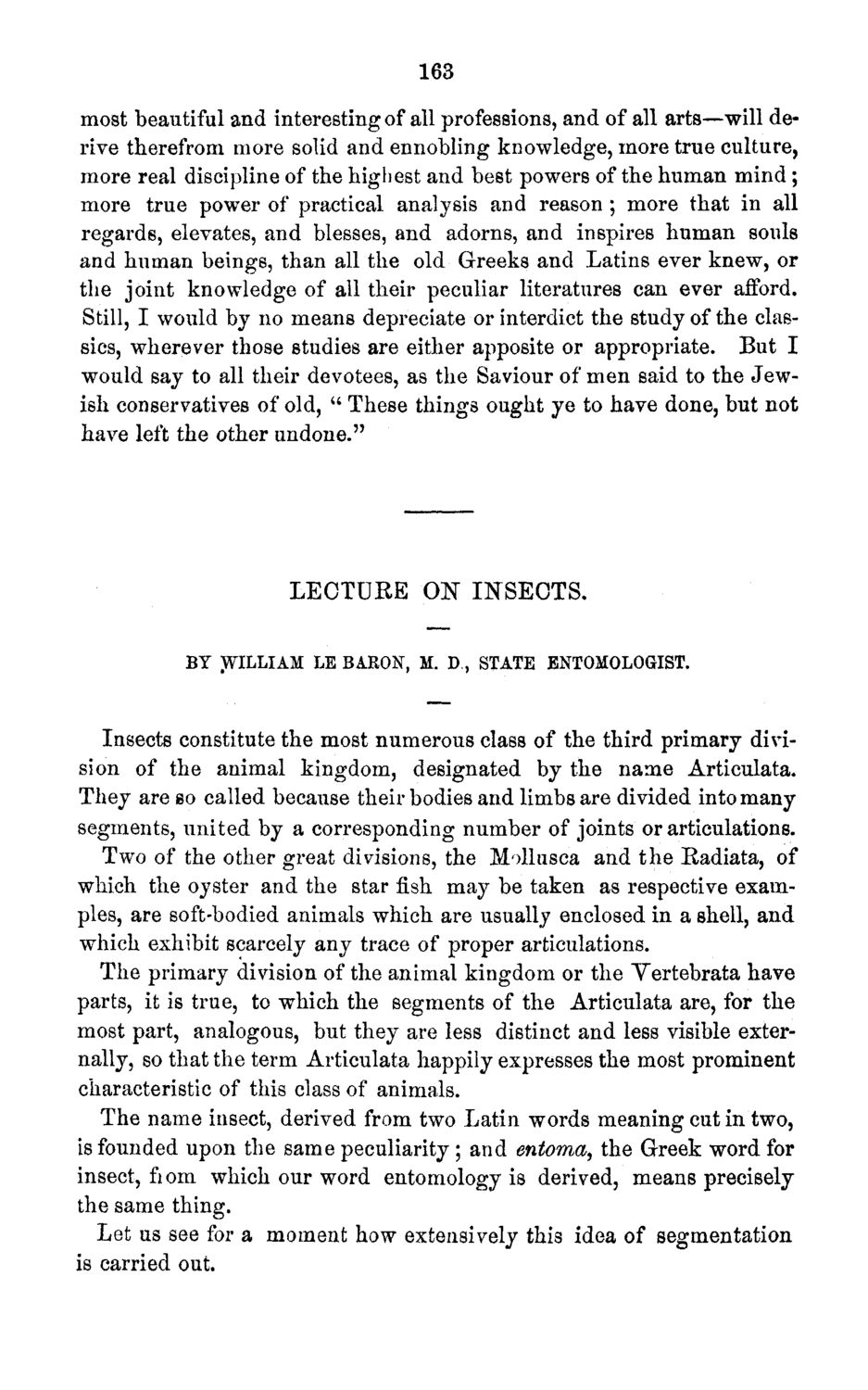| |
| |
Caption: Board of Trustees Minutes - 1871
This is a reduced-resolution page image for fast online browsing.

EXTRACTED TEXT FROM PAGE:
163 most beautiful and interesting of all professions, and of all arts—will derive therefrom more solid and ennobling knowledge, more true culture, more real discipline of the highest and best powers of the human mind; more true power of practical analysis and reason ; more that in all regards, elevates, and blesses, and adorns, and inspires human souls and human beings, than all the old Greeks and Latins ever knew, or the joint knowledge of all their peculiar literatures can ever afford. Still, I would by no means depreciate or interdict the study of the classics, wherever those studies are either apposite or appropriate. But I would say to all their devotees, as the Saviour of men said to the Jewish conservatives of old, " These things ought ye to have done, but not have left the other undone." LECTURE ON I N S E C T S . BY .WILLIAM LE BARON, M. D , STATE ENTOMOLOGIST. Insects constitute the most numerous class of the third primary division of the animal kingdom, designated by the name Articulata. They are so called because their bodies and limbs are divided into many segments, united by a corresponding number of joints or articulations. Two of the other great divisions, the M >llusca and the Radiata, of which the oyster and the star fish may be taken as respective examples, are soft-bodied animals which are usually enclosed in a shell, and which exhibit scarcely any trace of proper articulations. The primary division of the animal kingdom or the Vertebrata have parts, it is true, to which the segments of the Articulata are, for the most part, analogous, but they are less distinct and less visible externally, so that the term Articulata happily expresses the most prominent characteristic of this class of animals. The name insect, derived from two Latin words meaning cut in two, is founded upon the same peculiarity ; and entoma, the Greek word for insect, fiom which our word entomology is derived, means precisely the same thing. Let us see for a moment how extensively this idea of segmentation is carried out.
| |